Hey bru,
Imagine this:
You’ve just posted a Youtube video.
It’s the biggest one you’ve ever worked on, your most ambitious project yet. It took you weeks to write it, a month to shoot it, produce it, another month to edit it. You’ve been working until 2am three nights in a row, and you’re f*cking shaking from all the energy drinks and sleep deprivation.
You’ve put everything into it, and you need it to do well.
Not just because of your ego, but because you need to pay this month’s rent – you’ve dropped out of university to do this, quit your day job, to be a content creator.
Now that video’s out there.
You refresh the analytics page, refresh it again. You go to eat breakfast and in between spoons of your cereal you keep refreshing the page: 50 views in the first 30 minutes. That doesn’t seem like enough.
You go to the shower, you open and close the fridge four times, you go meet friends. You keep checking it. 300 views by lunch, is that enough? No, no, nowhere near enough. You check it before bed.
500 views.
F*ck, no, that’s not enough. You get up to check it again, you check it first thing the next morning. Refreshing, refreshing, refreshing.
Anyone who’s tried to make videos for a living has definitely had that experience. I know I’ve had it. Many times. I’ve been making films for twenty years and I’ve put off posting nearly every one for days, sometimes weeks – because of how afraid I am to see the views. I’ve never told anyone this before but I actually have 7 films that each took me more than 3 weeks to make and cost thousands of dollars that are sitting on my hard drive unreleased.
But do those views really matter?
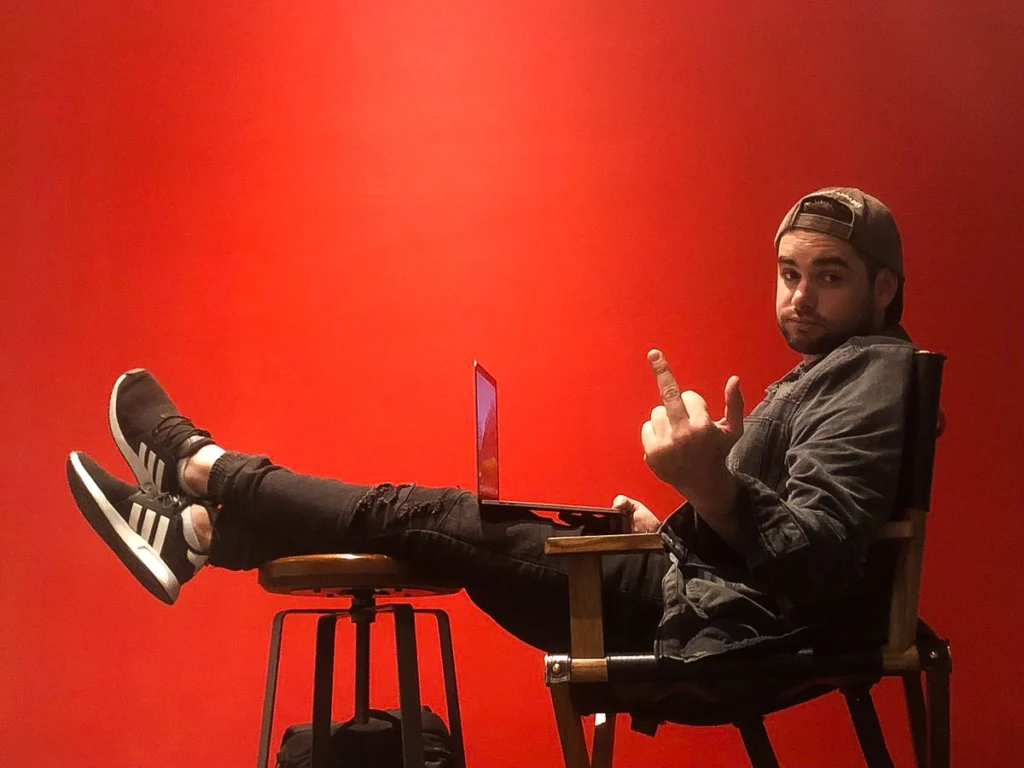
(Well, they f*cking feel like they matter.) At the time of uploading and the weeks that follow, until you start obsessing with your next idea, they feel like the most important thing in the world. It feels like all that matters. If they’re up, I’m overjoyed, ecstatic, confident and if they’re down, well, so am I.
This is something that I’ve battled with my whole career. I’m not going to lie to you and say I’ve reached some enlightened place where I don’t care about views at all. But after twenty years of filmmaking, you have to learn something. While it’s taken me a long time, I have realized that views are not the only metric that matters.
Everything depends on your intent. There are many different reasons to make a video. More broadly, there are many different reasons to create. This is how we have to judge things. Yes, views are often very important, but there are plenty of times a video with less views might be more useful to you.
So, do views really matter? The shortest answer is then… ‘it depends.’ But don’t worry, I’m not going to just leave you with ‘it depends’. By the end of the article, you will be able to define what your intent is, what kind of a content creator you are, and so figure out how much views matter to you.
I’m going to dive into this question of views from two different angles.
I will be brutally honest about how much views matter, from my experience as a professional content creator and filmmaker. But I will also unravel the broader questions of whether views should matter – and about where the line is between art and commerce, and furthermore, why you and I make art.
Why I got started – this is me at 14 years old in a Mcdonalds commercial
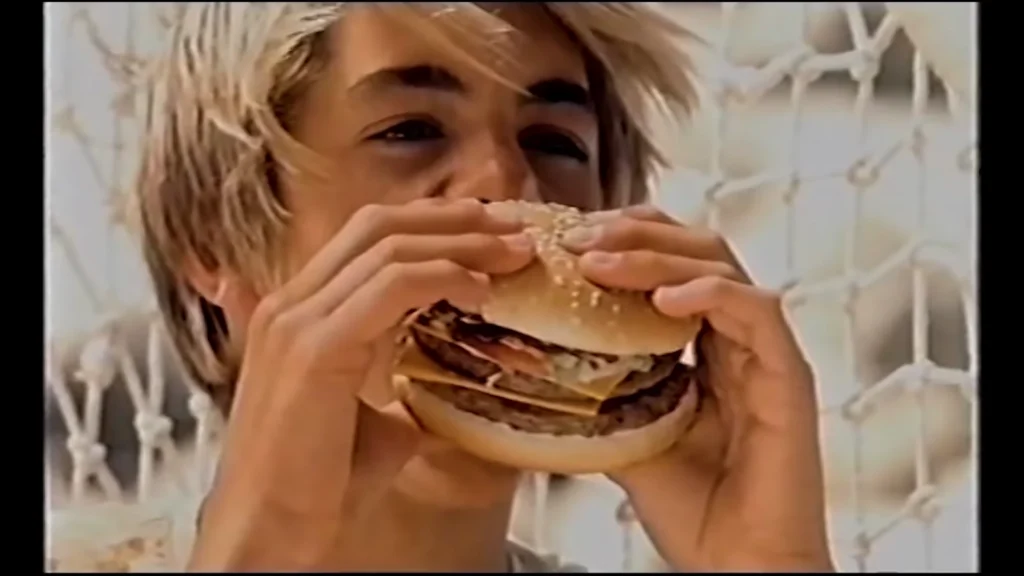
When I was fourteen, I acted in a Mcdonalds commercial. (That’s an actual shot from the advert). I had to eat a burger made out of all kinds of inedible objects to make it look pretty. It was the first time I saw a crew working on set, and I f*cking loved it. There was something about the whole environment – the camaraderie the crew shared behind the camera, the way they all drew together for this common vision of getting the perfect shot.
I saw the director, the DOP, the gaffer, the grips department – they all shared this vision. They had this deep commitment to perfection. For some reason, something clicked in my head and I was like, okay, that’s what I want to do…. For the rest of my life. Twenty years later, I am sitting at my computer at 1am on a Sunday night, writing a blog post about filmmaking. Thinking back to that first experience of seeing that film crew – I am filled with nostalgia, and with the same immense drive.
So, I used the money from that commercial to buy my first camera. That little piece of outdated gear started my entire career. I still use it sometimes, even though I’ve got a much more sophisticated kit. Somehow, that DV cam effect still has its place. I love the artisanal feel of it. It makes me think of that Johnny Cash song, ‘Ragged Old Flag.’ All of the scratches and scars remind me why I started, that I was just a kid with a burning desire. I’m still that kid.
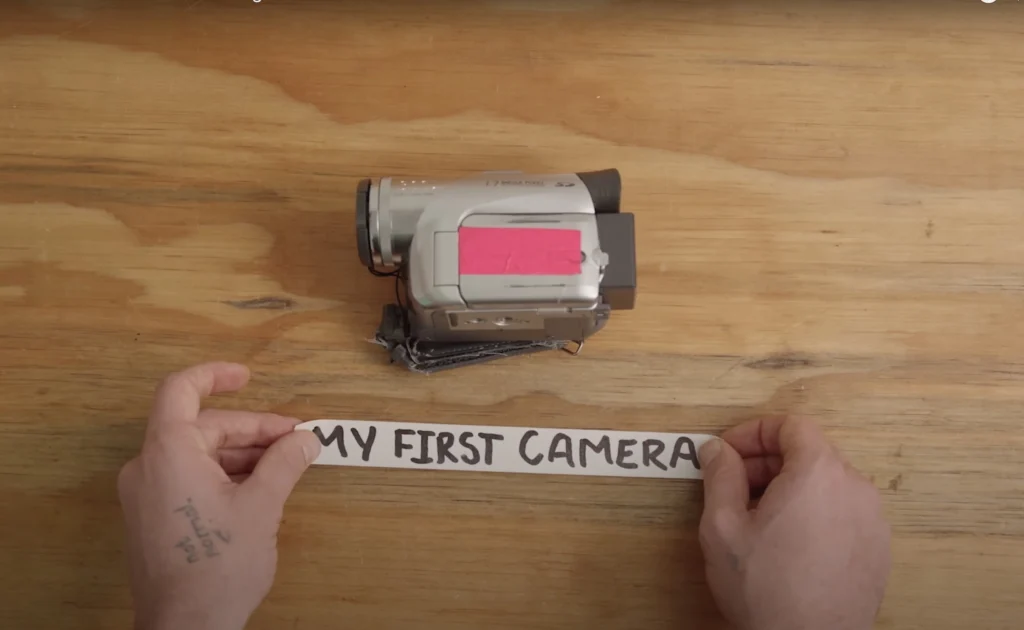
The first film I ever made was for my English class. I’ve always had social anxiety, I still do, and so when my teacher said that we had to give an oral, I asked if I could make a film instead. She said sure, no one had ever done it, so it could be cool.
I spent a week writing, directing, composing, and editing my first ever film. I showed it on a shitty little TV in the corner of the class. I guess this was my first official screening with an audience. The oral topic was ‘Defending the Indefensible’ and for whatever f*cking reason I decided I would make a film about why Jack the Ripper was actually a good guy haha. I was a weird kid.
Here’s a still:
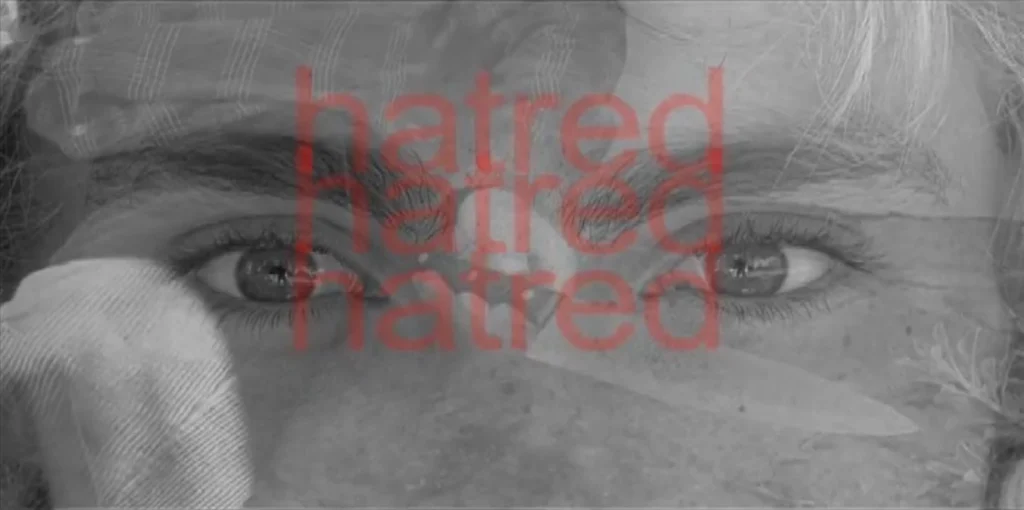
When the film was over, people actually clapped.
They applauded my film.
I’d never felt like that before, like what I had to say actually mattered. I realized that as an awkward teenager, I could communicate much more powerfully through film than my words.
I didn’t get into film at fourteen because of fame and money – but because film made me feel something, even though I didn’t understand what it was at the time. At that point in my life, I think I really had two desires. The one was this deep need to be heard, affirmed, appreciated – and the second, going through puberty, was I guess … women.
But even if I was thinking about sex, film made me feel fulfilled. It gave me a purpose. It made me feel like I was moving forward. Nothing had ever done that for me before, and school certainly hadn’t. I was never a motivated student, I couldn’t even be bothered to go. Most mornings, I deliberately overslept and my mom would have to wake me up six times. She even had to throw cold water on my face a few times. (Sorry mom!) But from the first time I picked up a camera, I had this drive to film sh*t.
I immediately started zooming into everything – blades of grass, bricks, people’s faces. It was like I was addicted, I was obsessed with capturing imagery. The camera gave me a thrill. Waiting for the perfect shot, what will happen when I capture it and put it onto my computer, add music accompanied by sound. How this would all amplify something as simplistic as dew dripping down a blade of grass. I was fascinated by how all these elements could be used to manipulate human emotion through storytelling to transform the way people saw things.
Now that I’ve been making films for twenty years, that feeling hasn’t gone away. If anything, it’s grown. It’s like a f*cking monster. The more I learn, the more obsessed I get. I hated school, you couldn’t have forced me to read a book. But now I choose to educate myself. To be honest, it’s slightly psychotic how much I read. I read one non-fiction book every single week on tough subject matter like Jung, Freud and Camus to try and understand the unconscious, and why people make the decisions they do. All so that I can be a better director and filmmaker.
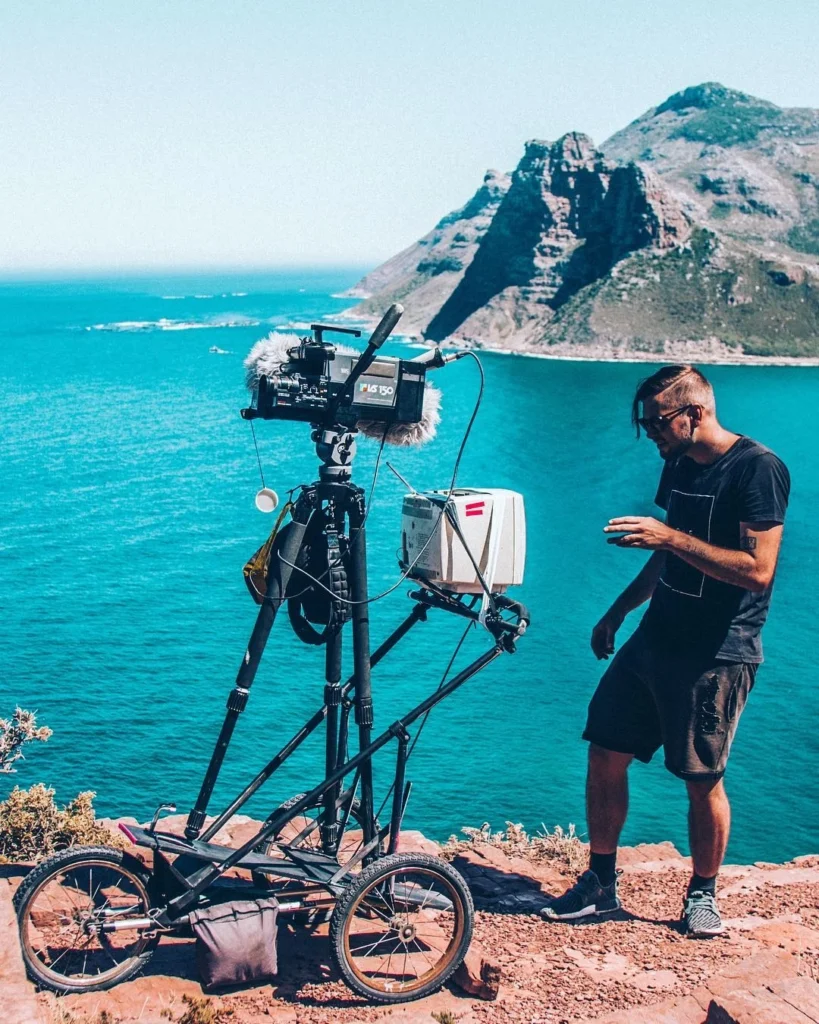
So whether views matter to me now, is a different question from when I was fourteen. When I was fourteen, I had f*ckall responsibilities. I didn’t have to worry about paying for rent or food – the only thing I really had to do was go to school. And like I said, I wasn’t very good about that ha ha. I basically lived day by day. I could mess around and it didn’t matter. But now I do have financial responsibility, to start with, I have a wife. I have a company. I have a child – and he needs as much of my love and attention as possible. That’s not to mention nappies, or food, or soon, school fees.
I also have people relying on me. When I make videos for Mr Beast’s philanthropy channel, views matter. A lot. For a normal video, we’re looking for a reach of 30-40 million people. Anything less than that is a failure. To put that in perspective, 40 million is roughly 4.5 times the population of NYC.
The reason we care so much about views at Beast Philanthropy, is that big views means big revenue – from the views themselves, but also from big brand reads. 100% of the revenue earned from the channel goes straight back to the charity – so if we make millions, that means millions go to charity. That means altering the lives of hundreds of thousands of people around the world, every year. That’s a pretty good motivation.
But that doesn’t make it any easier to get 40 million views.
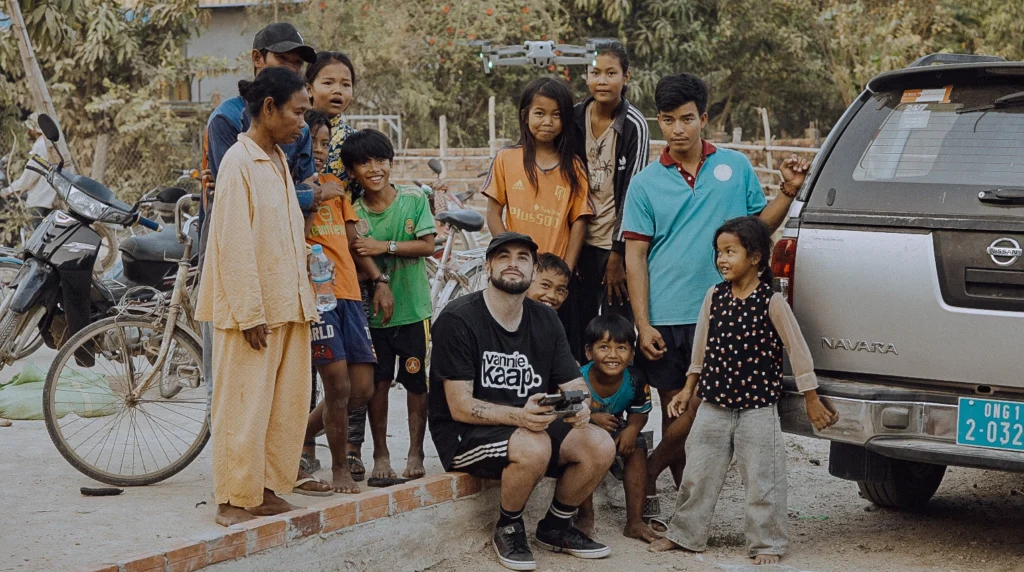

However, for specific videos, views are less important than the specific audience we reach. The normal style of video on Beast Philanthropy has a very high ‘entertainment’ value and typically appeals to a younger audience. But in terms of getting big doners, who tend to be older, we need different kinds of videos. For example, ones that connect with the viewer more intellectually or philosophically – rather than mainly focusing on purely entertaining them.
So in these cases, the total views matter less than the specific audience that we are reaching. The views still matter of course – but we are trying to bring in viewership (and encourage donations) from people who wouldn’t usually watch the channel.
It all depends on intent. And after making twenty of these videos, our intention has become crystal clear. So, how do you go about defining a successful video without using likes, comments, and views, as the only metrics?
What about smaller audiences?
So you’re probably thinking that’s all well and good, Dan, but the smaller videos for Beast Philanthropy still get millions of views. My videos don’t. How am I going to make money? How much do views matter if I’m not Mr Beast?
I hear this binary equation a lot, that views = revenue, and that if you want to ‘make it’ as a content creator you need to have millions of views. Many people also think that you have to sell out to get views. So it becomes selling out = views = revenue. This is a difficulty I’ve often faced as a filmmaker.
I was lucky enough to get great opportunities early on in my career. In my early twenties, I was signed to multiple production companies around the world, which brought me a lot of high budget work. And quickly scratched the itch I’d had as a teenager in that Mcdonalds commercial, gazing longingly at the director behind the camera. At 23 I was now that director.
However 4 years later I moved over to YouTube. At the time prior, Youtube seemed lesser. I thought Youtube was for lesser creatives, for sellouts, basically, who couldn’t cut it in traditional film or advertising. A kind of low art, fingerpainting compared to film. But boy oh boy was I wrong.
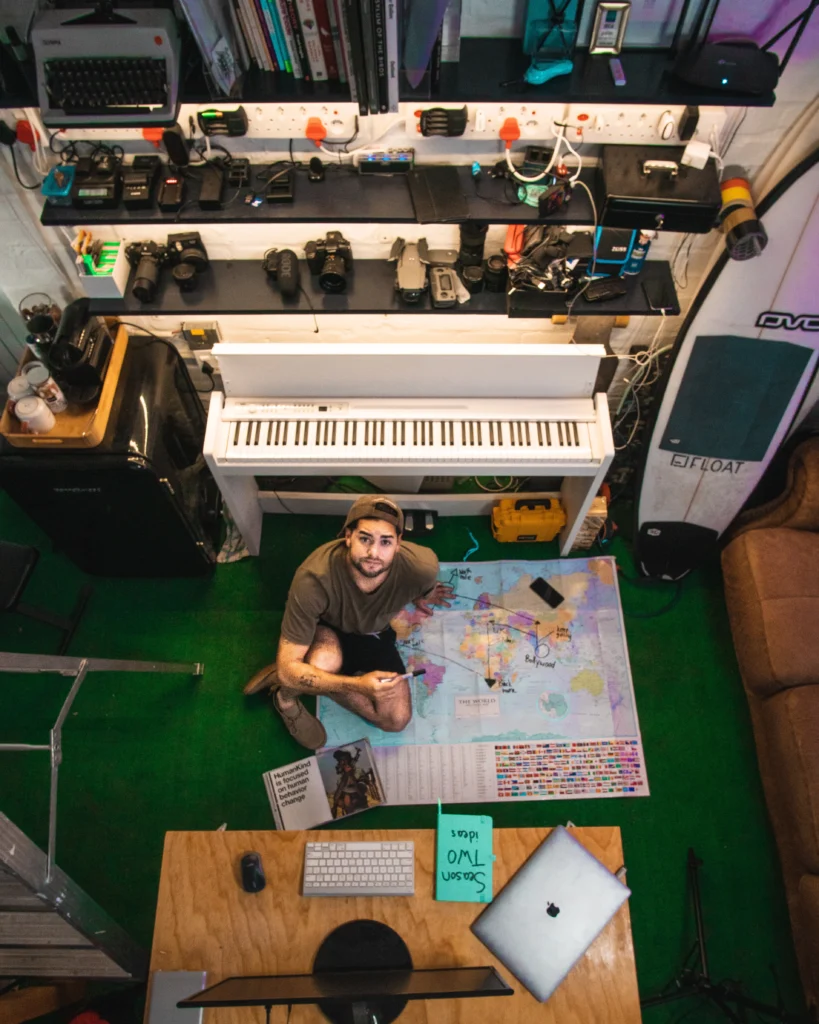
In 2017, I was offered a job by a really big YouTuber to help him reinvent his daily vlogs and for some reason which I can’t even remember, I decided to pack my bags, move over from my comfortable job as a film director and pursue this mission of becoming a Youtuber. Maybe it was because I had become too comfortable where I was and have always been drawn to a little self destruction. Film directors I used to idolize told me that I was so obviously misusing my talent. Fortunately, my transition to Youtube was seamless. But I was still terrified that I was selling out. Selling out: something I was still worried about today.

How much we’re willing to sell out to pay the bills – that’s a decision everyone has to make for themselves. However, that binary is not the only way of approaching things.
Yes, if you’re trying to make a living from videos, you can’t do much with zero views – but it is possible, though difficult, to keep creative freedom and still get plenty of money. Let’s take the example of Van Neistat. The brother of my closest mentor and Youtuber that made me move over to Youtube , Casey Neistat.
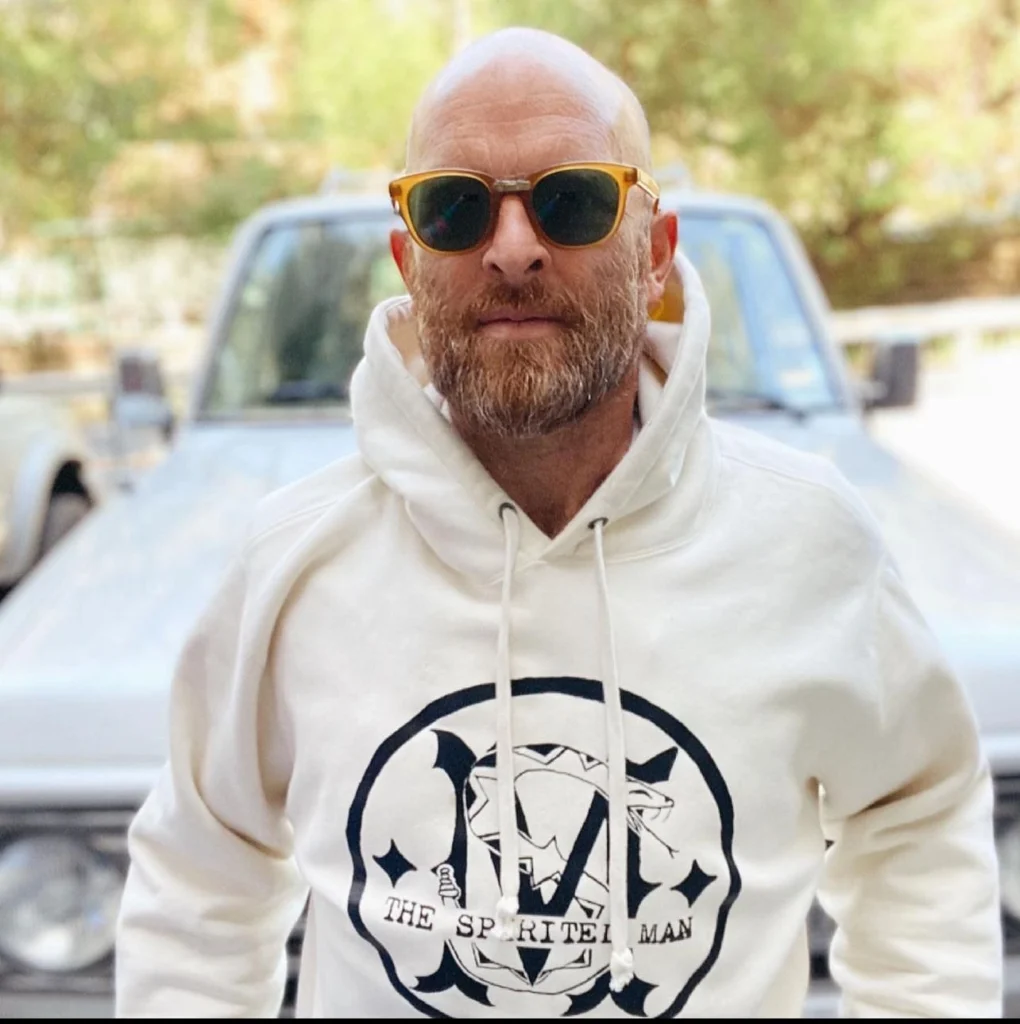
This is a creator who, in my opinion, balances things perfectly. Van is someone who gives up very little creative freedom. His Youtube channel, The Spirited Man, is highly creative – he’s covered film, writing, travel, sobriety, and what it means to be ‘spirited.’
By conventional standards, his channel is on the smaller side. He gets about 100-300k views per video. But – because his work is such high quality, he has a super engaged audience.
From my own experience as a Youtuber, and also working with a lot of content creators and brands – between my production companies JOE, and All Of Us Studios, as well as being the Chief Creative Officer at Beast Philanthropy – I can make a good guestimate of his earnings.
For a simple brand read/ brand integration for a video of that size (100-300k views) – he should be getting paid 17-20k USD per video. (I know a lot of people with videos of that size only get around 5k, but if that’s you, you’re getting ripped off. 17-20k is the rate.) Then if he does a dedicated brand video (this is basically an entire commercial for a specific brand) that rate is close to double.
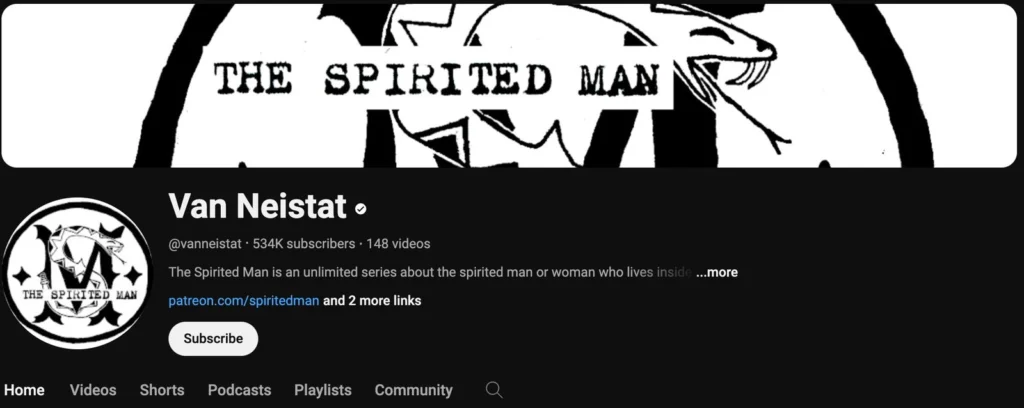
Looking at Van’s channel – he seems to make about four videos a month. Not all of those are sponsored. If two videos a month have brand reads, he’ll gross 408-460K US dollars a year. Of course, that’s before production costs (his are on the low-end).
Even so, he’ll come out with what, by conventional standards, is a pretty huge salary. And what is really admirable about this, is that he hasn’t sold out at all. When it comes to his younger brother Casey, who has a channel more than 20 times that size – it’s the same thing, just on a larger scale.
So, it’s possible to make good money without selling out, provided your work is high quality and you have a very engaged audience. I’m not saying that’s easy, not by any means. If you just want to make money as a Youtuber, and that intent is clear, you’ll definitely be richer. You won’t have to worry about abandoning any creativity, and you’ll have the upside of not having to worry about the correlation of views vs self worth as an artist.
But what I’m getting at here, is that views versus creative freedom doesn’t have to be a binary choice. It’s totally possible (but difficult) to make the art you want to make, and get paid.
There’s a saying we have in production – ‘some for show, some for dough.’ That might look something like this. For show: make a Youtube channel where you only show your best work, the things you’re most artistically proud of. For dough: use client-work on the side for the bills, but don’t showcase it.
But the lines can get blurry. As Walt Disney said, ‘We don’t make movies to make money, we make money to make more movies.’
What’s your creative ideal?
But forget about the Youtube algorithm for a moment.
Should views matter?
As a creative, should you need to have an audience?
I’ve seen a lot of posts ranting about how horrible it is to chase views and to have to produce content regularly. That the commercial pressure of being a creative is too much. Or about how it’s okay, as a creative, to take a break from social media. That it’s okay to not post for a few months. That you should go make your art in secret and that this is good for your art.
Now that’s an idea.
I disagree with it.
(The obvious irony is that all these posts are on social media. If these people truly believed what they were saying they wouldn’t be on f*cking Instagram. Somehow, making posts about how you don’t need to post is a content niche in itself.)
From the perspective of a creative career, not posting anything is a bad idea for obvious reasons. But I’ve been thinking a lot about the philosophy that’s underneath the “you-don’t-need-to-post-anything” mentality.
It’s this romantic idea of the artist as some person who sits alone in a candlelit room, scribbling his masterpiece. (Maybe he has Mozart’s Requiem playing in the background). Someone who is completely satisfied by the act of creation and doesn’t need any validation from sharing his work. Simply making art makes him happy. He doesn’t have to worry about the business of being a creative, and he doesn’t have an audience telling him what to do. For this person, art is a completely individual endeavor.
I want you to ask yourself: What would you do if you had endless resources, all the money in the world? Would you still have this deep draw towards creation?
In my opinion, if you would, you are an artist.
If I go back to when I was fourteen, that feeling of looking through the viewfinder of my first camera, and uploading the footage for the first time – it was priceless. I wasn’t thinking about financial gain. I wasn’t entrepreneurial, I didn’t know anything about business or money. As mentioned above, I was only 14 without a worry – and when I did have to start contributing financially at sixteen, I got my first job. Which, lucky enough, was in film.
So, what would I do if I got that deal? All the money in the world and not needing to get paid for my art?
I’m a bit burnt out, not from working so hard, don’t get me wrong I f*cking love work, but I’ve just had a kid that’s 10 months old. Nothing can prepare you for the lack of sleep that comes with this. (But Seth if you’re reading this in a few years, I have loved every single day of the last 10 months. While I could’ve used a bit more sleep, they have been the most meaningful 10 months of my life).
So, in saying this, I’d probably take some time off. I’d rent a ginormous yacht and sail to the best surfing spots in the entire world with my family for a few months. But then again, that idea seems romantic now. If I really think about it, I know that after two weeks, the boredom and lack of creative outlet would drive me insane.
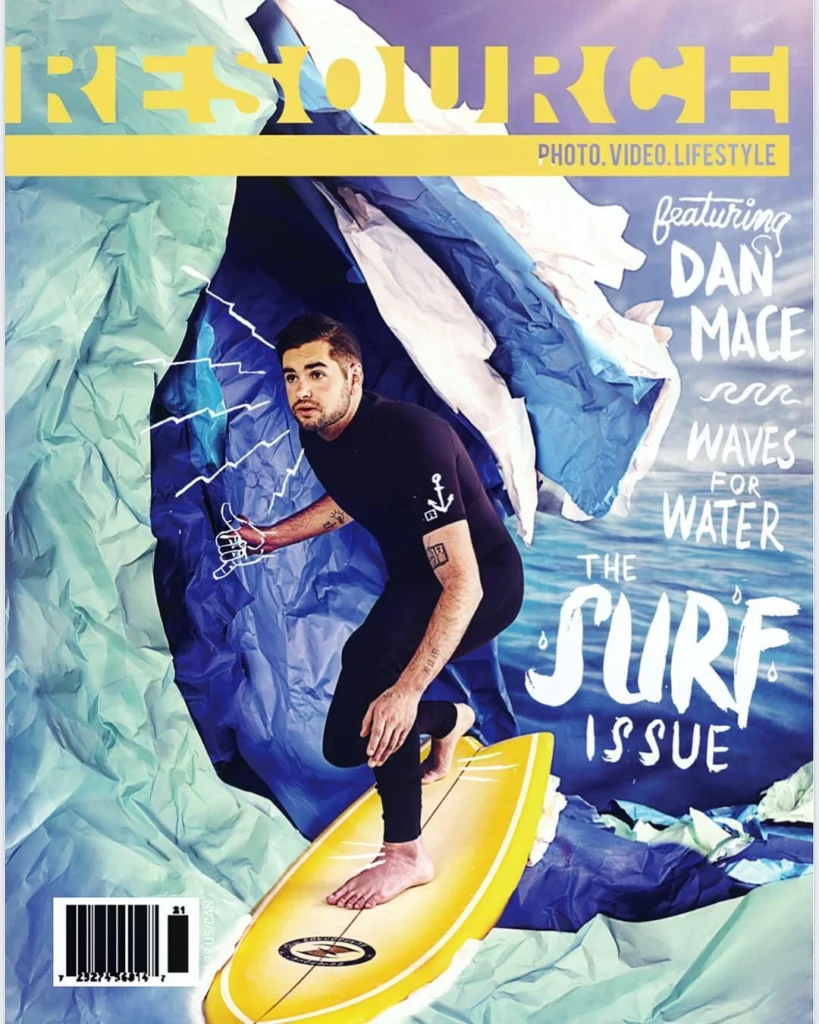
I would want to make films – and I’d still want to release them. I’d still want an audience.
Why do we make art?
I think it’s important to make a distinction here. Between people who want creative careers and people who sometimes do creative things. Creativity, I believe, is ultimately about enjoyment. A creative, or a content creator, or an artist – these are different.
For example, if you’re someone who just writes a poem now and then, or dabbles in drawing – you might be perfectly satisfied with no one ever seeing it, or only showing it to your sister and your best friend. Whatever. That sort of creation absolutely has its place, and for many people that’s an important emotional outlet. So for those sorts of people, there’s a simple answer – audience and views don’t really matter. The ideal of just scribbling away in a corner is very easy to achieve. But that’s not what I’m really talking about here.
It comes down to intent. I’m talking about people who want to have creative careers. Creation is what they do, it is their vocation. Would it be good for these people to never need to share their work? I don’t think so.
The person who only paints now and then ‘for fun’ – they probably dream of becoming a professional painter. They like the idea of some gallery person stumbling upon their work and offering them an exhibition and then they quit their job. But this person doesn’t share their work out of fear. They’re afraid that it’s only their mom that says their art is good and that the wider world will say it’s sh*t. This fear is no joke. Like I said, I have seven films I’ve never released.
But a lot of the importance of art, maybe even the most important part, is how people respond to it. For example, I love great films because they help me to reflect on my own experience and learn more about myself.
Art has a crucial role in society. It has this unique ability to alter human behavior. There have been many studies done about this. It can change things very quickly. You can be shown one five-minute film, and it can completely change the way you feel about plastic pollution. Maybe it was a psyops from a water bottle manufacturer and they did it so well you think plastics aren’t really a problem anymore. But then you watch an exposé on Taylor Swift’s private jet emissions, and you’re worried about the carbon footprint again. You can feel like you hate someone, then read Camus’s The Stranger, and find compassion for them.
Great films, novels, and plays teach us about ourselves and the world around us. They make us better people. Banksy said, ‘Art should comfort the disturbed and disturb the comfortable.’ Imagine if Wes Anderson never shared his films, or Salmun Rushdie never published his novels.
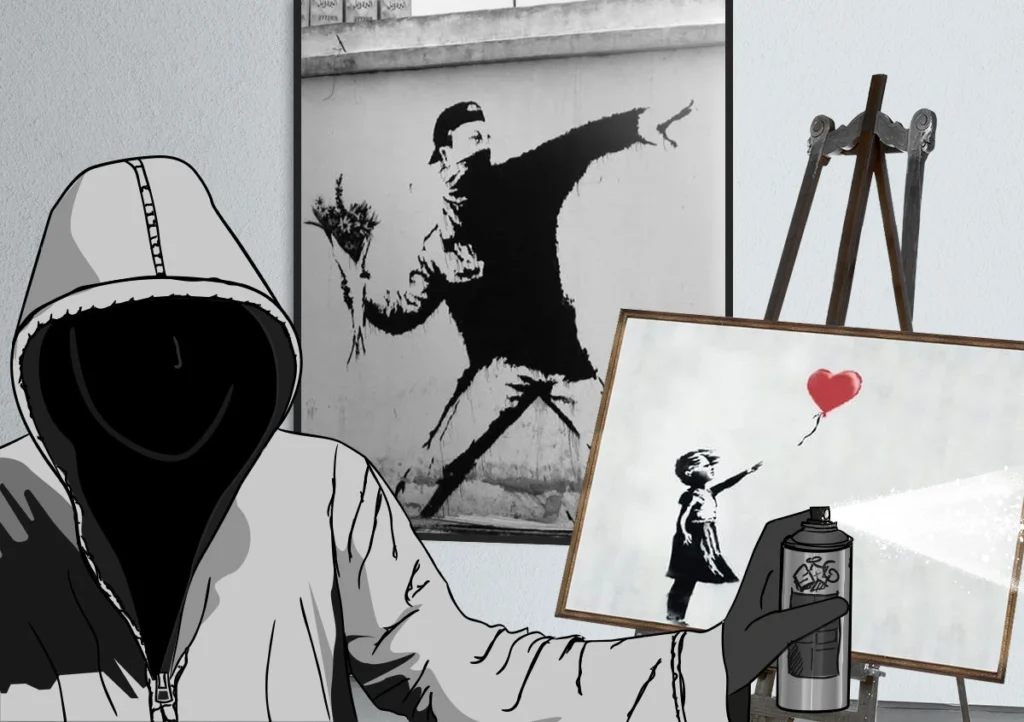
Obviously art needs to be shared, the world would be a worse place otherwise.
So, If I had all the money in the world, my main aim would be contributing to this world of art. There would be nothing worse than making some weird ass sh*t that nobody enjoys.
And I’m sure Alfred Hitchcock got a lot of personal benefit out of making his films, but at the end of the day, literally millions of people have gotten something out of his work, so which thing is more important?
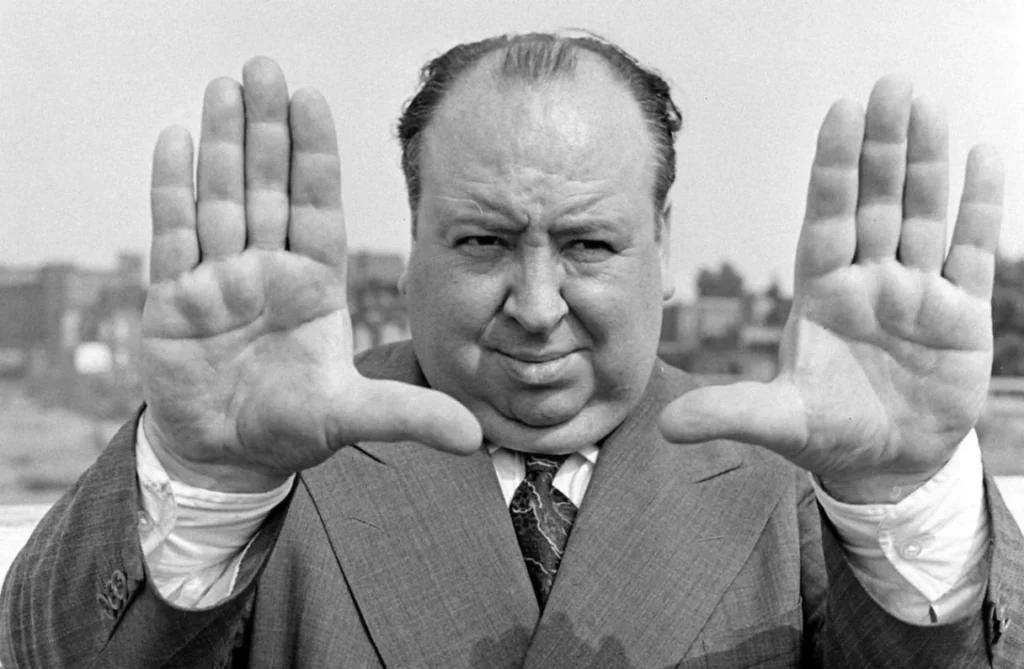
The bottom line is, art needs an audience. If we go back to the origins of theater, the amphitheater in antiquity – art was always made for an audience. We can’t make it otherwise – whenever I make a film, I am always thinking of how the viewer will experience it. That’s what art is.
Actors need theaters, writers need readers, filmmakers need viewers.
Why? Because for art to mean something, someone needs to interpret that meaning. Art is about communicating something, we need someone to communicate something to. Art is a discussion. The meaning it generates is not in a straight line from filmmaker to viewer, or writer to reader – the real meaning is generated in the space in between. It is also generated between different viewers. For any great art work, people disagree on what it means, there are hundreds of viable and competing interpretations. This conflict over meaning is a big part of the meaning of art. Art should start arguments with friends, it should start fan cults. It should have people dressing like the main character, wanting to be the main character, or be with them.
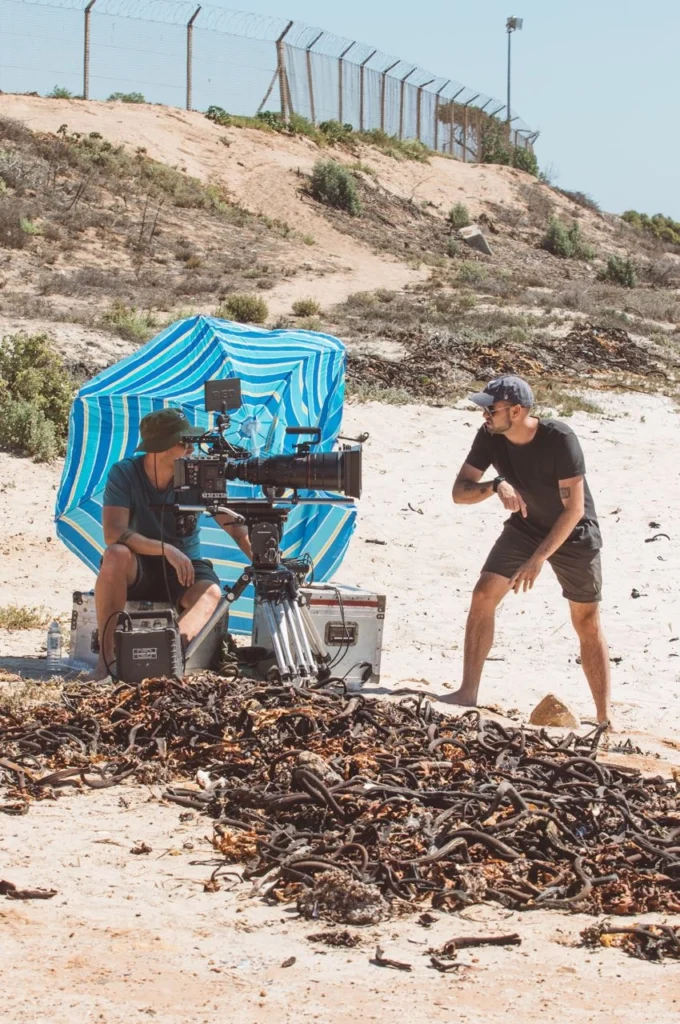
But there’s another reason it’s important to share your work, which is that it’s incredibly motivating.
If you’re serious about what you’re making, you’ll work f*cking hard at it. And then why shouldn’t you get a reward for that? There’s nothing like the thrill of seeing how people react to my films. And then when people respond well to my work, that gives me a huge boost to go make more.
Let’s be honest then. You care what people think about your art. The degree varies but everyone cares. If you say you don’t, you’re lying to yourself. And it’s okay to care, it’s perfectly natural.
But of course you f*cking care. There’s something weird that happens – if you’re in a car with your friends and you say, ‘Let me play you a track,’ and they say it’s sh*t, you’ll be upset about that. But why should you be upset? You didn’t even f*cking make the song! So we even care what people think about what we think about art.
A big reason lots of people hate posting, or needing to get views, is that they’re not satisfied with the response they’re getting. They don’t like being judged by an audience. This is the risk in sharing your work – people might not like it.
As a creator, negative feedback always stings. When I’ve made a film, I’ve poured everything into it. I’ve had an intimate experience with this art object. So if someone hates it, that hurts. It hurts even more when the negative comment is right. If I’ve had a tight deadline, and left a sloppy match-cut in, and someone says, ‘That match-cut isn’t right.’ It stings, because I know the match-cut was wrong – and if they’ve noticed it, everyone’s probably noticed it.

But the thing is, an audience should judge you. What the audience thinks, usually, is not some bullsh*t that only exists because of the age of social media. Of course there are cases where good work doesn’t get appreciated at first – James Joyce had Ulysses rejected by dozens of publishers and now many critics regard it as the most important novel of all time.
Except art is not totally subjective. Your work isn’t great because you decide it’s great without showing it to anyone. This idea of art being purely subjective is seductive, because it makes you feel better when things don’t go well, but it isn’t true. Bru, don’t tell me Lil Yachty is better than Mozart.
There’s an objective part of art, which comes out in technique. And who is going to judge your art except for an audience?
But should you sell out?
Of course there’s a big risk here, and you have to be careful not to get carried away with what the audience thinks. You have to have your own intentions and a strong will and a good bullsh*t detector. For example if I normally post short films that don’t do well and then do some nature photos and they blow up, I might be tempted to become a nature photographer even if I really hate nature photography. Don’t get me wrong I love nature and being in it – but I would prefer not sitting around waiting for a juvenile lesser spotted woodpecker to pop out of the bush so I can capture it.
An audience always means there’s a risk of selling out.
So to go back to what I said earlier, about the difference between creativity and being a creator – a creator has to deal with an audience, by definition. It’s a part of the game.
I would argue that this is part of the challenge and has always been part of the challenge. Playwrights in the amphitheater struggled with selling out. It’s not because of social media but obviously social media can make those pressures bigger than they would’ve been in 6 BCE.
Intent
So what you can take from this, is that whether views matter is really to do with intent. And furthermore that a clear intent – and expectation – is the way you can push through the fear of negative feedback. We shouldn’t pretend that we don’t care what people think. We need to find a balance between admitting that we care what people think, and not allowing that to control us.
Why are you making the video? If it’s to get rich or famous, then f*ck yeah, views are almost the only thing that matters. But a philosophy I live by is that happiness = reality/expectation. I even have this tattooed on my body.
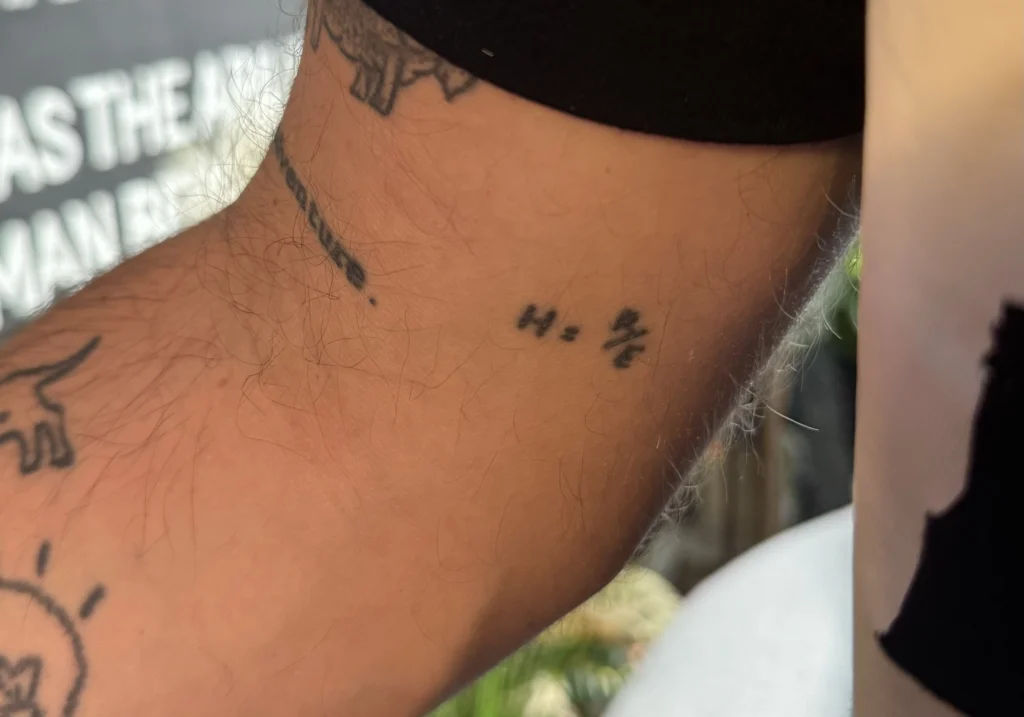
So, whatever your expectation is, you should own it. And you should be honest with yourself. We all have egos. You want people to like what you create. Be honest about that. But if, for example, you go in with the intention that you are going to make the best video you make, no matter the result, and you do give that video everything, and you choose not to expect five gazillion views, it is easier to be satisfied with the result.
Set your intentions high and expectations low.
Sometimes a video will bomb. Even if we think we’ve given it everything. I’m afraid of this, everyone who makes videos for a living is afraid of this. But it happens. We need to accept this risk. It’s part of what makes being a creative so exciting – that while things can go brilliantly, they can also go terribly. This is probably why creative industries can attract some messed up people. So when your video does bomb, you might have to be stubborn for a little while. To say, ‘I know I’m good, even if people think this video is dog sh*t.’ And then, once the sting wears off, you have to be very honest with yourself. If everyone hated your video, there was probably something wrong with it. And then you come back and you make a better video. This mental process is a big part of being a creative.

How we react comes down to intent. Except our intent behind doing something isn’t immediately obvious. Of course you have to prioritize the most important things, but most people will have a few different intentions. E.g. some sort of artistic vision, enjoyment, money, attention.
Whether or not you are selling out is a difficult question that only you can answer for yourself. But whenever I make a video, I ask myself these questions:
- Did I enjoy making it? We all come to creativity because we enjoy it, so if I enjoyed making the film, this is a pretty good starting point. Of course this doesn’t mean it wasn’t hard.
If I hated it, that’s a problem.
- Am I proud of it?
- Am I thinking of my creation as a contribution, or as something that is going to take – take away from people’s time and feed my pockets?
- If this was the last thing I ever made would I be satisfied?
- What would fourteen year old Dan think about this video/film/project?
- Most importantly, what was my intention?
The immense draw I feel towards film is ultimately about my place in the world. Filmmaking has given me purpose. I always felt a need to communicate to people, but before I started with film, I didn’t know how to do it.
The camera gave me a megaphone, a magnifying glass for my ideas. I still struggle to communicate. But now when I need to – I can take a visual, a voiceover, a talking head, sound, music, camera angles. I find it so much easier to communicate my thinking.

This is awesome BRU
Once again, you are not holding back with anything in this post (I am only searching for the secret link to those 7 videos which I would love to watch lol) and I really appreciate that. It was a great and thought provoking read. Great stuff!
I’m an educator and found relevant transfer of ideas and thoughts in your post to my area of expertise. Thank you Dan Mace!
You keep delivering with such insightful and valuable posts on both YouTube and here! Thank you for all you do for your audience bru <3
You keep delivering with such valuable and insightful content on here and YouTube. Thank you for all you do for your audience bru <3
A wealth of knowledge! Thanks for always offering exceptional insight!
This is such a in-depth and knowledgeable read. Wow I enjoyed this!
Oh Dan, you went too deep. Thank you so much, i have learnt a lot.
Wow, your perspective is really amazing. Thank you for sharing it with us… 🤗
Flip some awesome insights here. Thanks for sharing, bru!
Don’t know another creator who shares this much value and knowledge with his audience! Thanks again Dan.
You are a true inspiration, Thank you for sharing 🔥🔥🔥🔥🙌
This was for sure my favourite blog yet – packed with so much insight and valuable information. So amped for the next one!
Thank you for sharing what you have learnt throughout your journeys. Can’t wait for the next.
Really great read Bru! So many great points made in this blog! 🙌🏽
So much insight bru wow. Really impressive!
Hey bru!
Dan, in the past I have left two constructive comments about your videos, one you replied to, and to be honest, I kinda feel a bit stink about it.
The reason is that I have always been inspired by your tenacious hunger to express creativity and the wrestlings of an artist. That, because myself, and I am guessing other audience members, have this high expectation of what we gain from your art, it makes us more critical of you. Strange dilemma…
So I want to encourage you to keep being you, to take what feedback is helpful, but remember that most of the constructive feedback is from audiences that L O V E your work more than their criticisms of you. We want you to continue to make art that inspires.
Dan is quickly starting to become my favorite artist, this needs to be a book in and of itself.
Honestly think you should write a book! This is such amazing content, wow. I’m so inspired.
Thank you for your great article! so inspired!
Such a brilliant article Dan, thank you for sharing it, your content and hard work behind it is very inspiring!
Sorry, just finally got to finish reading this… but, top notch Dan. Friggin, Top Notch. A great distillation of why hungry creative people create, and the struggle of commitment vs reward… (in a capitalist society) Nothing is pure anyway. Not even Werner Herzog. Not even Mozart. Everyone needs to “sell out” some amount. I’d agree, Van, and Casey, are on the low-end of that scale, but everyone has to sell some sliver of their soul to be seen and appreciated. The ancient artist in the Cueva de las Manos had to sacrifice time and energy to learn to gather pigments, grind them up, mix them together, carry them by torch into caves, and apply the paint from their mouths… all just to make marks, that, lets be honest… not a LOT of other people were going to see.
I think stressing over being called a sell out is a big waste of energy. Obviously creatives need to check themselves, but pulling your hair out over some keyboard jockey is 100% energy wasted. Good creative energy poured onto the floor. Wasted. I think of it along the lines of that famous Nelson Mandela quote: “Resentment is like drinking poison, and then hoping it will kill your enemies.”
Oh, and also… release them 7 videos bru. Keyboard jockets be damned. 🤘😎✌️
Dan. I really appreciate the video you’re talking about at the beginning of this video. Since then, I plan my YouTube videos like that in a smaller way. (I have a problem with planning bigger projects) but it was the first one, that shared an ideation process in detail. And I think you should upload each section as a separate video. Just to get some bucks and views on top.
🙏🏻 thank you.